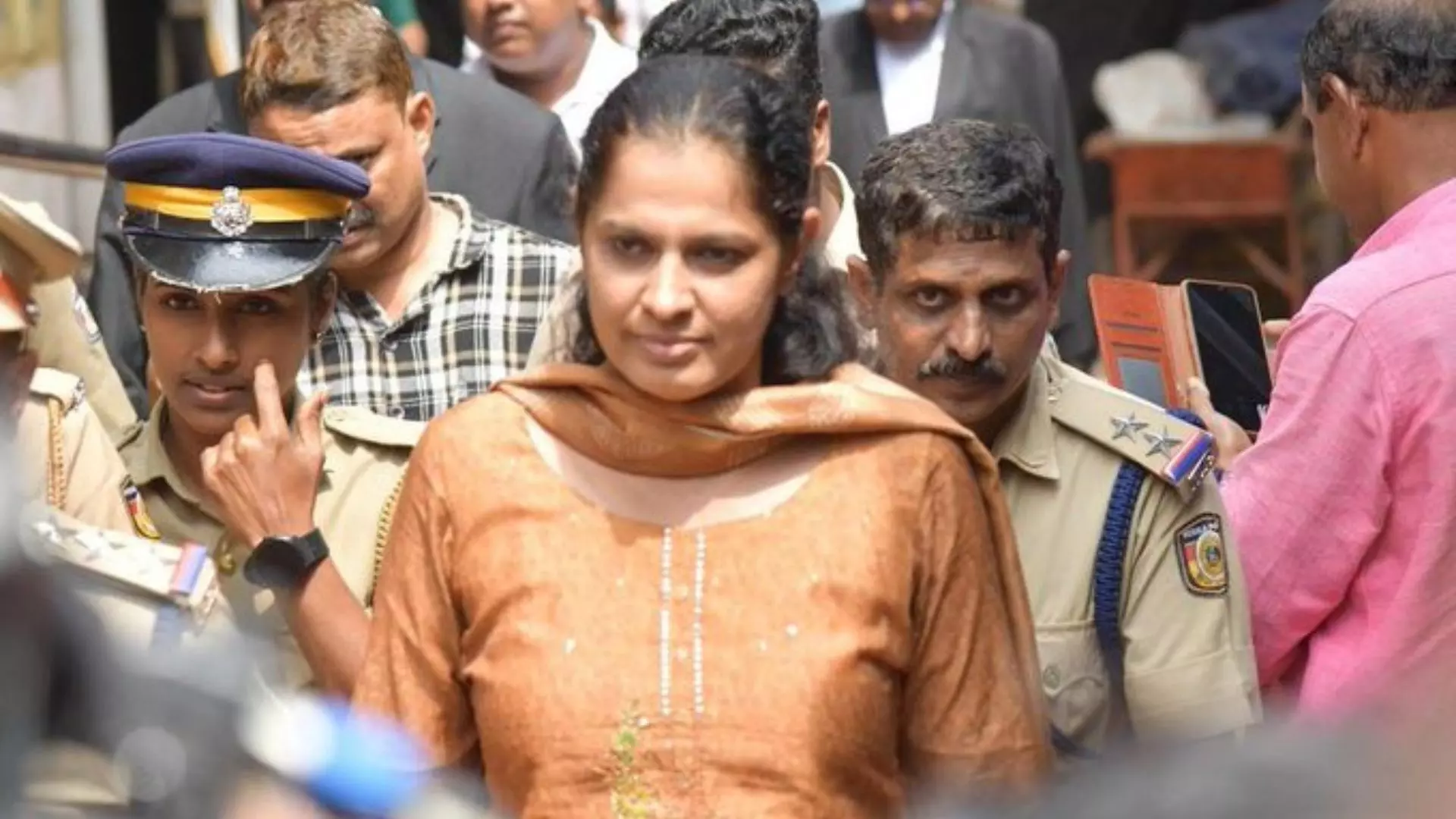In a high-profile case intertwining politics and tragedy, a Kerala court has granted bail to PP Divya, former Kannur District Panchayat President and member of the Communist Party of India (Marxist) (CPI(M)), accused of abetting the suicide of Additional District Magistrate (ADM) Naveen Babu. Divya, who allegedly made accusations of corruption against the late ADM, had been in judicial custody since October 29 after surrendering to authorities. The principal district and sessions judge of Thalassery, KT Nissar Ahammed, approved her bail, allowing her release pending further investigation.
A Tragic Farewell and Allegations of Corruption.
Naveen Babu was found dead on October 15, just hours after a farewell gathering organized on the eve of his transfer to another district. The ADM was scheduled to assume his new post in Pathanamthitta and retire within seven months. According to sources, the farewell event took a dark turn when Divya publicly alleged that Babu had accepted bribes in exchange for issuing a no-objection certificate (NOC) for a petrol pump—a statement that was met with shock by the attendees and by Babu himself.
The allegation has been cited as a potential factor that contributed to Babu’s untimely death. Critics argue that Divya’s comments, made in an open forum and directed at an official already in a vulnerable position, amounted to harassment. Consequently, following public outrage and mounting pressure, the district court rejected Divya’s initial request for anticipatory bail, prompting her surrender.
Political Fallout and Legal Developments.
The case rapidly developed into a politically charged issue, with Divya’s affiliation with the ruling CPI(M) under scrutiny. On October 17, two days after Babu’s death, Divya was dismissed from her position as district panchayat president, signaling the gravity of the accusations. In response to the public backlash and the legal proceedings that followed, Divya’s defense argued that her statements were intended to address local concerns over alleged corruption within the district administration, rather than to personally attack or pressure Babu.
In her application for anticipatory bail, Divya contended that her comments were made in “good faith,” aimed at promoting administrative transparency and addressing corruption grievances brought forward by others. Nevertheless, the court initially dismissed her plea, citing the severity of the circumstances surrounding Babu’s death. Divya ultimately surrendered and entered judicial custody, setting the stage for her bail hearing.

Judiciary’s Decision to Grant Bail Amid Public Outcry.
The decision to grant bail has stirred debate within legal and public circles, with some arguing that the judiciary may have shown leniency towards a prominent political figure. The judiciary’s stance on granting bail to Divya highlights the complexity of the legal system’s engagement with criminal allegations involving political figures. This leniency, while a procedural possibility, has provoked concerns regarding the judicial treatment of public officials accused of serious crimes.
Some commentators view the court’s decision as a controversial move, asserting that the involvement of a politician in a case of this nature warrants a rigorous judicial approach. However, supporters of Divya claim that granting bail was necessary to uphold the principle of presumed innocence, especially given that the investigation into Babu’s suicide remains ongoing.
Political and Social Reactions To The Controversial Bail.
Divya’s bail has prompted varied reactions from political entities, with CPI(M) leaders coming forward in her defense. CPI(M) state secretary MV Govindan issued a statement of support for Divya, noting that she remains a committed party cadre. “She is not an enemy of the party. When a cadre makes a mistake, the party will correct it and move forward,” Govindan remarked, affirming the party’s stance that Divya’s actions were not intended to harm Babu personally but rather to address systemic issues. The ruling party’s endorsement of Divya, despite the case’s grim overtones, has stirred debate over the extent to which political allegiances can influence public perception and accountability.
The case has also mobilized opposition forces in the state, particularly the Congress Party, which has vocally criticized Divya and demanded accountability from the district administration. Led by Congress state chief K Sudhakaran, protesters marched to the Kannur collectorate, demanding an investigation into the actions of District Collector Arun K Vijayan, who was present during the farewell event but reportedly did not intervene to stop Divya’s allegations against Babu.

Rising Concerns over Political Influence in Legal Proceedings.
Divya’s bail has reignited discussions around the influence of political standing in criminal proceedings. Observers argue that cases involving political figures, especially those in ruling positions, often face procedural hurdles and public bias, impacting the fairness of investigations. Public outcry in Kerala emphasizes a growing call for impartiality within the judicial system, particularly in cases that involve elected officials or individuals with strong party affiliations.
This incident underscores a larger discourse on accountability within politics and the influence wielded by public figures, questioning whether power can sometimes overshadow justice. Critics warn that allowing accused politicians to evade detention undermines the legal system’s credibility and sets concerning precedents for future cases involving political figures.
Increasing Judicial Vigilance in Cases of Public Influence.
The Kerala judiciary’s decision to grant Divya bail—while within legal boundaries—has heightened attention towards judicial responses to criminal cases involving politically connected individuals. As public scrutiny increases, the legal system is expected to face demands for transparency and a more stringent approach to high-profile cases, particularly where allegations of harassment, abetment, or exploitation of influence are concerned.
For Kerala, this case not only illuminates the fragility of public officials who face intense scrutiny but also emphasizes the need for consistent judicial standards. The developments in Divya’s case will likely serve as a benchmark for similar future cases, especially as the role of political affiliations in criminal investigations remains an ongoing concern for India’s judiciary and society at large.

